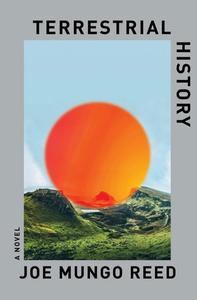
 Readers unfamiliar with the science of fusion reactions can either wait, as this fast-developing field of energy production already dominates many discussions around climate change and the future of our planet, or read Joe Mungo Reed's moving and intelligent novel Terrestrial History, which places at its center the work of fusion scientist Hannah and the generations to follow her. No prior expertise in nuclear physics is needed, but neither does Reed (We Begin Our Ascent) dumb down the details in this richly drawn family history.
Readers unfamiliar with the science of fusion reactions can either wait, as this fast-developing field of energy production already dominates many discussions around climate change and the future of our planet, or read Joe Mungo Reed's moving and intelligent novel Terrestrial History, which places at its center the work of fusion scientist Hannah and the generations to follow her. No prior expertise in nuclear physics is needed, but neither does Reed (We Begin Our Ascent) dumb down the details in this richly drawn family history.
Reed uses the multivocal structure to great effect, with each chapter devoted to one of four characters living at a different point in time (and space). At first, the family connection between the characters is not clear. But readers come to understand that, in 2076, Hannah's son, Andrew, an optimistic politician who believes in the power of humanity to unite behind a common goal, and granddaughter Kenzie, also a fusion scientist, are offering competing visions for how to save the planet--or at least its people--from the certain devastations of climate change. The final member of the quartet of narrators, in 2006, is Roban, Kenzie's son and one of the First Gens born of the "Homers" who established the first colony on Mars. The sections focused on Hannah have no date at their head, but it is 2025 when she encounters the young man from the future, the one who changes everything for her.
As Reed weaves careful conversations across generations, he also bends and folds time, much like the young time traveler who visits Hannah on the beach that fateful day. The novel is a triumph of the climate fiction genre, using both the futuristic colony on Mars and the recognizable realities of our present day to ask readers to consider where they would invest their hope: on a failing Earth or a fragile Mars. Terrestrial History offers no easy solutions, however, choosing the certainty of countless uncertainties. "Maybe," Kenzie wonders, "the point is to have tried, I think? To be like the light. To try and then to turn around, knowing that this way is not the way." Perhaps readers must resign themselves to not knowing, as Andrew recognizes, "What could we have done but what we thought best at the time?"--Sara Beth West, freelance reviewer and librarian
Shelf Talker: A brilliant exploration of time and the possibilities inherent in any vision of the future, Terrestrial History manages to be both hopeful and devastating, a triumph of climate fiction.

